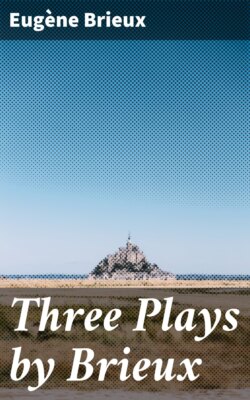Читать книгу Three Plays by Brieux - Eugène Brieux - Страница 9
На сайте Литреса книга снята с продажи.
The Passing of the Tragic Catastrophe and the Happy Ending.
ОглавлениеTable of Contents
Not only is the tradition of the catastrophe unsuitable to modern studies of life: the tradition of an ending, happy or the reverse, is equally unworkable. The moment the dramatist gives up accidents and catastrophes, and takes ‘slices of life’ as his material, he finds himself committed to plays that have no endings. The curtain no longer comes down on a hero slain or married: it comes down when the audience has seen enough of the life presented to it to draw the moral, and must either leave the theatre or miss its last train.
The man who faced France with a drama fulfilling all these conditions was Brieux. He was as scientific, as conscientious, as unflinching as Zola without being in the least morbid. He was no more dependent on horrors than Molière, and as sane in his temper. He threw over the traditional forced catastrophe uncompromisingly. You do not go away from a Brieux play with the feeling that the affair is finished or the problem solved for you by the dramatist. Still less do you go away in ‘that happy, easy, ironically indulgent frame of mind that is the true test of comedy’, as Mr. Walkley put it in The Times of the 1st October 1909. You come away with a very disquieting sense that you are involved in the affair, and must find the way out of it for yourself and everybody else if civilization is to be tolerable to your sense of honor.
